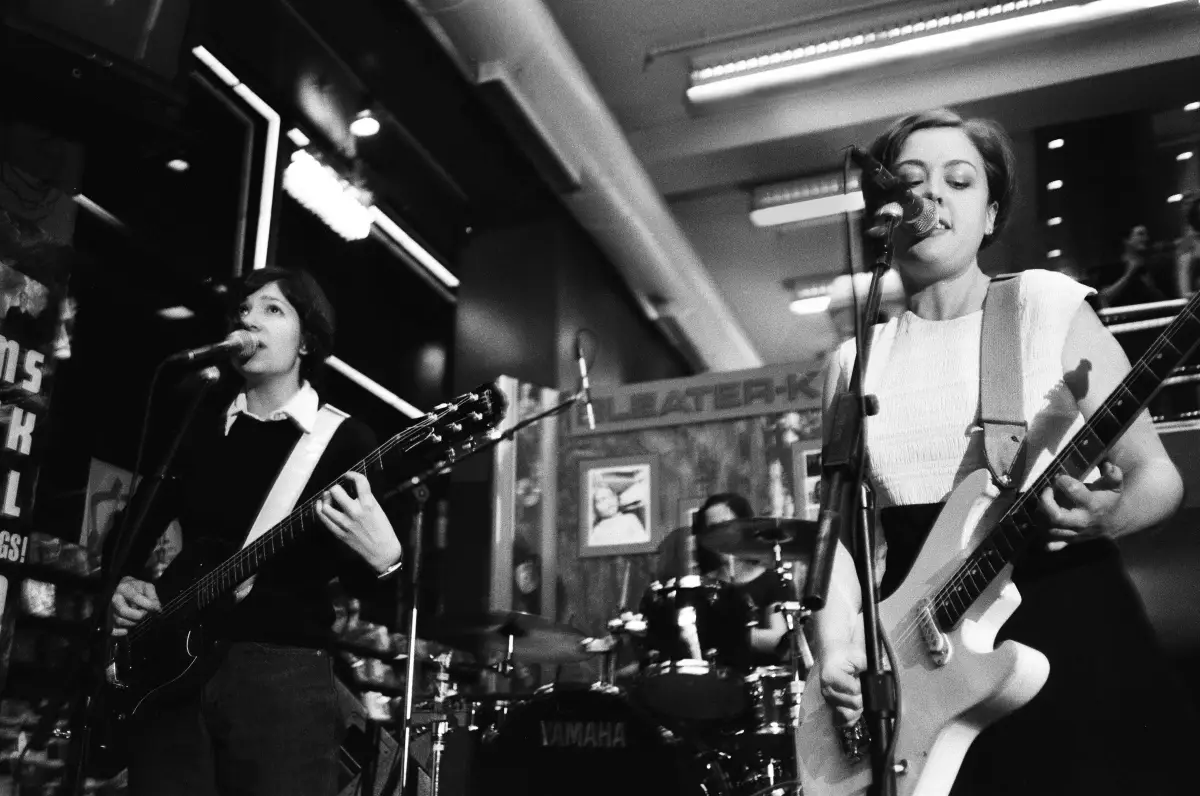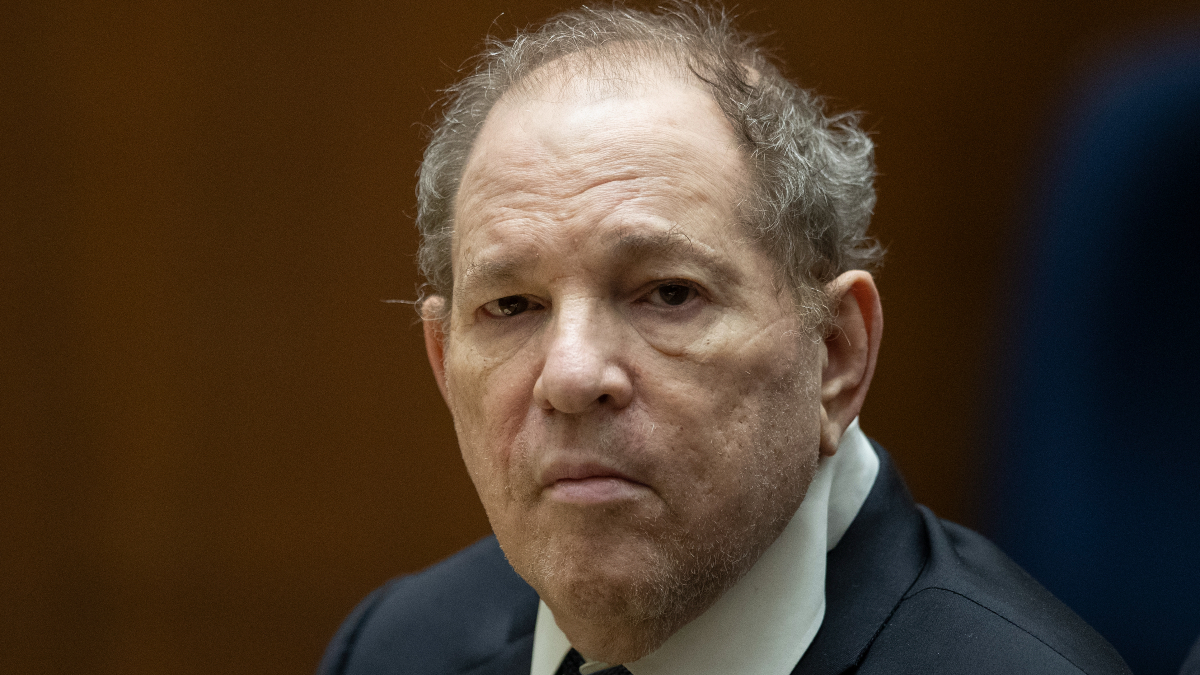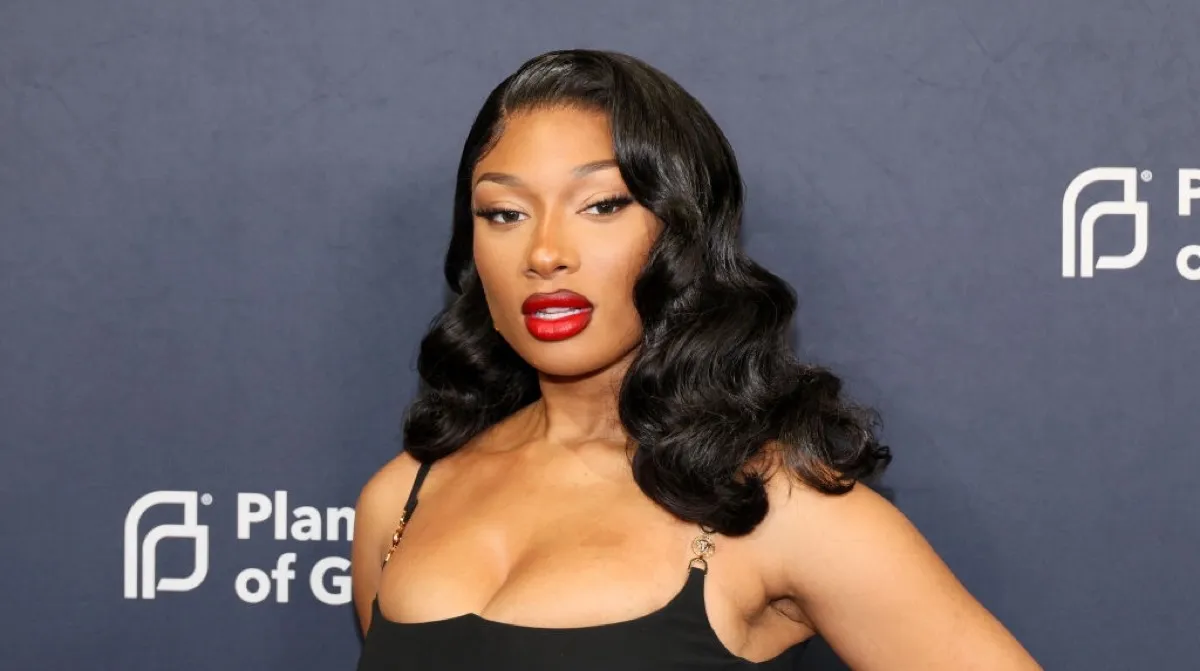Looking back, I don’t know how I even got into riot grrrl. All I know is that I was an angry teenage girl, frustrated with how my gender affected how freely I was able to operate in the world around me. As a creative, I felt like I couldn’t hang with the boys unless I acted dumb and let my boobs hang out. As a “Lisa Simpson” type, I felt as though I wasn’t allowed to be smart unless I was also complacent and demure. And finally, as a human being in general, I felt as though I didn’t have a right to just … exist as I was unless I looked a certain way.
There’s a certain point in every young girl’s development where they have to start making choices about whether or not they want to acquiesce to arbitrary standards that reduce our humanity, or they want to put the work in to stand above it and shout, “FUCK YOU!” And my god, I don’t know if I could have done it without the riot grrrls before me.
What is Riot Grrrl?
Riot Grrrl is a music movement that originated in response to the boys’ club nature of the punk and grunge scenes of the early ’90s. Despite the anti-establishment energy that punk brought to the table, the loudest voices within it tended to be those belonging to men who couldn’t keep it in their pants. So, the girls bit back. They started to deliberately go against feminine standards of music at the time and create their own wrathful sounds; whereas screaming and shouting about piss and shit used to be “men only” activities, the riot grrrls took that shit for themselves and made it even better.
More than that, riot grrrl became a way for these women to talk about the violence and traumas of their lives in a way that allowed them to full express their feelings. I have a particular fondness for Corin Tucker, frontman of Heavens to Betsy and later the popular band Sleater-Kinney, as she’s made a career out of her strong, powerful voice. Tucker has often sung about dark subjects in a way that’s brought me a lot of comfort, and I haven’t really found a voice quite like hers’ even in today’s music:
So yeah, as can be heard here, it was pretty standard for riot grrrl to get really nasty with it. The attitude was very much that, if we couldn’t be ourselves, whoever that may be, then we’d really play up everything that our oppressors didn’t want us to be. Within that, there was liberation, and with that liberation also came a greater queer reckoning: girls dating girls, people coming out as nonbinary and trans, a network of zines, support groups, and everything they were deprived of before riot grrrl started.
Even beyond the revolutionary basis of the movement, the safety and sense of community that it nurtured allowed the grrrls to really let their guards down. And with this sense of vulnerability came a plethora of creative, silly, and fun songs—the likes of which “the boys” would have surely shot down, despite not exactly being fonts of creative genius themselves.
As for the bands themselves, I’m going to cover what I consider the three “hardest hitters” aside from the previously mentioned. I’ve read some of your comments about related topics though, and I love seeing all of your suggestions, so if your favorite isn’t here please be sure to drop some links and introduce them to new fans!
Riot Grrrl bands to know
So we’ve already mentioned Heavens to Betsy and Excuse 17. Corin Tucker of the former ended up linking with Carrie Brownstein of the latter (yes, that Carrie Brownstein, from Portlandia), and eventually they were joined by badass drummer Janet Weiss to form Sleater-Kinney. As one of the most formative groups of my teens, Sleater-Kinney combined the revolutionary spirit of riot grrrl with a transcendent musical inventiveness; it was the soundtrack to my coming of age as a feminist, a lover, and a fighter.
I’d be SORELY remiss not to mention Bratmobile, whose fun, playful, yet sardonic energy is truly one of a kind. They deliberately chose not to take influence from the “coolest” bands of their time, because they wanted to make a statement, and they wanted that statement to be their kind of effeminate: i.e., not moon-eyed over cock-rock. There’s always been something clever, smart, and just plain cool about their sound and energy—which is ironic, considering they’re pretty anti-“cool.” I absolutely love this song, and it was something of an anthem for me in my late teens, frustrated as I was that so much creative and communal organizing centered around bullshit optics:
Their stripped-down sound carries a bite to it, and even when their lyrics are sparse, they hit you like little needles. So too did their zines, Girl Germs, which helped kickstart the habit of trading zines at shows and using them to help other women find their creative and social liberations.
But if you have to know any band on this list, it’s Bikini Kill. Trying to sum up Bikini Kill’s legacy will just make me feel like a tool, because who else did it like Kathleen Hanna? She’d go up on stage and scream and belt, flashing her body because that was her goddamn stage, and whereas in most shows men felt the need to aggressively push their way to the front, Hanna would always immediately push back. “Girls To The Front” became an anthem of the movement, largely thanks to her.
Bikini Kill brought a crudeness to the movement, a sharpness that cut through all the dissent and created a safe, strong front for riot grrrls to get it all out in. Their sound was harsh, bombastic, and also incredibly girlish, but not in the waifish way that many people associate the world with. It was girlish in the way that emphasized one’s love for women, and for girlhood, and for how hard we’re willing to fight to keep ourselves safe. In other words, it goes hard as fuck.
I know we’re all about girls right now but I do think this is a fun fact to mention: Kurt Cobain and Nirvana were pretty close with Bikini Kill and the movement at large. Kurt actually dated Bikini Kill’s drummer, Tobi Vail, and their relationship inspired quite a few songs from the album “Nevermind.” In particular, Kathleen Hanna once wrote on their wall that he “Smells Like Teen Spirit” because of a deodorant he used to wear.
On a similar note, I love Courtney Love and Hole, but as she doesn’t personally identify with the movement (and actually has some problems with the people within it), I’m choosing to refrain from including her here. But you should still listen to “Live Through This.”
Where’s Riot Grrrl Today?
Movements ebb and flow and are often only with us for a moment. Ultimately, riot grrrl was just a movement, not necessarily a sub-genre, and as a result, I wouldn’t exactly feel confident in saying that it exists today as it did then. This is especially true in an era of all this “lo-fi” crap, which often compels young women to sing with waifish, ghostly, defeated tones.
But did the movement accomplish something? Of course it did—it accomplished a lot. No one movement can slow down the beast that is the music industry, yet riot grrrl was a particularly powerful movement, and it left a discernible effect that can still be touched upon today. If anything, now is the best time to feel its spirit, because more and more women of color are finding their voice in artistic spaces.
For one thing, a lot of you probably know The Linda Lindas: a heavily riot-grrrl-inspired band of teenagers (all POC, yes!!!) who are carrying so many torches all at once with their fantastically caustic sound. I might be a little old for this kind of sound, but goddamn, it feels good to be hopeful for the kids.
And even before The Linda Lindas, we had groups like Girlpool, who have since changed and gone separate ways, but who carried that energy and spirit with them. It separated them from the other major acts in LA at the time, who were all trying to be “above it all” (i.e. dead-spirited). Girlpool was dark, moody, and earnest, refreshingly so:
Riot grrrl will persist as long as there are people who are touched and affected by its spirit, and who go on to reflect that spirit in their own endeavors. I know I try to carry it on, and I love how The Linda Lindas are doing it, and I always see touches of it in any punk or DIY scene I happen upon while out in the world.
So, with the blessing of the bitches before: If you’re mad, feel it. If you gotta scream, scream. You are your own powerhouse, and nobody can take that from you.
(Featured Image: Lance Bangs)









